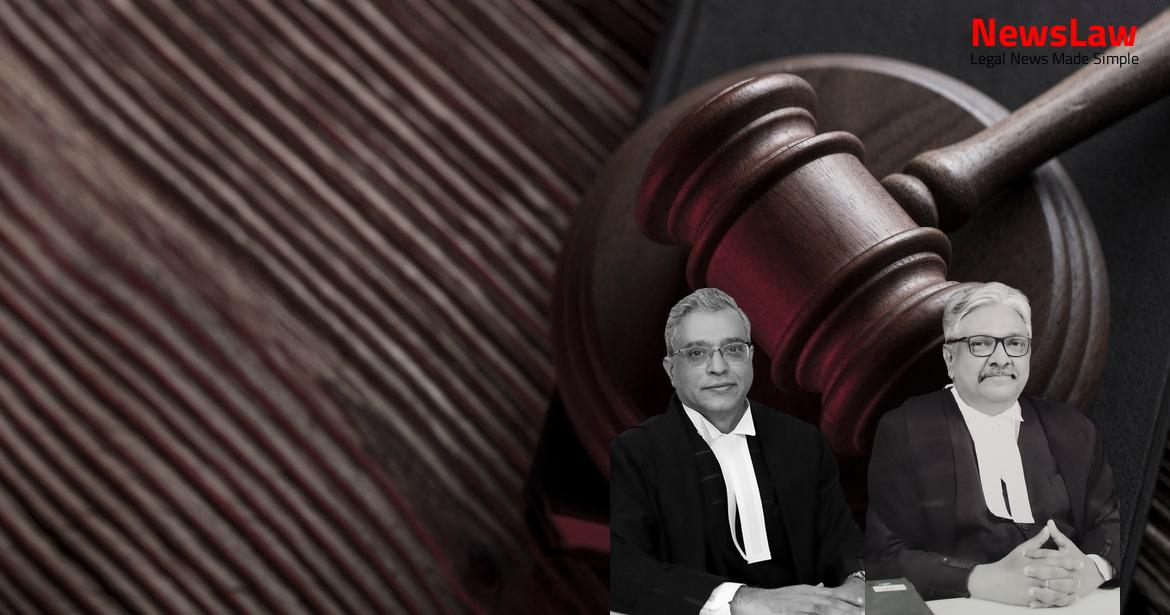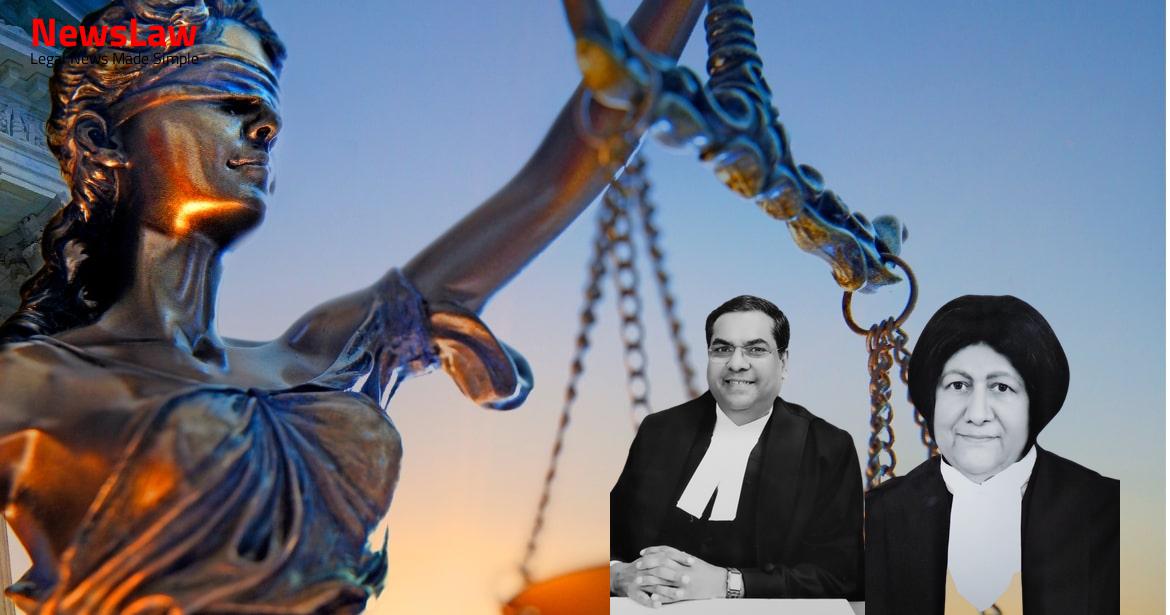The legal case delves into the intricate analysis of assessing compensation for two deceased individuals and a minor child, highlighting the court’s meticulous examination of various factors. The focus is on the court’s legal reasoning in determining compensation without emphasizing the parties involved, shedding light on the complexities of quantifying damages and future uncertainties. This summary encapsulates the nuanced approach taken by the court in evaluating compensation claims in a distinctive legal scenario.
Facts
- The Tribunal assessed the notional income of the first deceased at Rs.36,000/- per annum and awarded a compensation of Rs.4,59,000/- after 1/4 deduction towards personal expenses with a multiplier of 17.
- 50% was deducted for contributory negligence as the horse cart was in the middle of the road during the accident.
- An additional Rs.1,00,000/- was awarded for loss of consortium and Rs.25,000/- towards funeral expenses, resulting in a total award of Rs.3,54,500/- with 7.5% interest.
- The High Court dismissed the appeal for enhancement of compensation.
- The claimants are the husband/father of the deceased and three minor siblings.
- The notional income of the first deceased was argued to be wrongly fixed without considering her monthly income of Rs.5000/- from a dairy farm business.
- No award was given for future prospects.
- For the second deceased, a notional income of Rs.54,000/- per year as a student was proposed.
- The minor child’s notional income was assessed at Rs.36,000/- per annum with a 50% deduction for personal expenses and a multiplier of 15, resulting in a compensation of Rs.2,70,000/-.
- 50% was deducted for contributory negligence in the minor child’s case as well.
- An additional Rs.25,000/- was awarded for funeral expenses, leading to a total award of Rs.1,60,000/- with 7.5% interest.
- The High Court dismissed two appeals for further enhancement of compensation arising from separate orders of the Motor Accident Claims Tribunal.
- The Tribunal had initially decided two accident compensation claims.
- The appellants sought additional compensation through the appeals.
Also Read: Analysis of Intent in Fatal Assault Case
Arguments
- The finding of contributory negligence merits no interference.
- In absence of any proof of income, the question of future prospects does not arise for both deceased individuals.
- The second deceased was a minor school-going child with no income, hence the question of future prospects does not arise for her as well.
- The common submission in both appeals was that deduction on the grounds of contributory negligence was considered unsustainable and unjustified.
- Reliance was placed on the case of Kajal vs Jagdish Chand & Ors., AIR 2020 SC 776, to argue that the income of the deceased child should have been assessed at Rs.4846/- per month.
- Learned counsel for the respondents contended that the present appeals do not merit interference.
- There is no evidence regarding the claimed business income of the first deceased.
Also Read: Ensuring Fair and Thorough Police Investigations: A Legal Perspective
Analysis
- Contributory negligence finding against the deceased passengers set aside.
- Deduction of 50% for contributory negligence deemed unjustified and unsustainable.
- Inability to hold passengers liable for contributory negligence as they were victims.
- Refusal to enhance compensation for the deceased child due to premature death.
- Difficulty in quantifying the loss of the child’s life and the emotional impact on the family.
- Courts’ use of ‘just compensation’ for consistency in awarding compensation.
- Compensation based on the deceased’s capacity to provide happiness rather than claimant’s financial position.
- Compensation for loss of prospective happiness and future prospects due to the child’s untimely death.
- Ignored evidence by lower courts regarding emotional impact of the child’s loss on the family.
- The first deceased was a 30-year-old housewife, and the child victim would have grown physically but not mentally due to the accident.
- The case is unique and not a death claim, focusing on various expenses and damages.
- Allowance of Civil Appeals in specific situations only, based on the evidence presented.
- In the case of R.K. Malik vs Kiran Pal, the need for compensation for the loss of expectation in life due to the untimely death of a child was emphasized.
- Educational and personal growth opportunities that would have been available to the deceased child if she had lived were considered for compensation under non-pecuniary damages.
- The value of a mother’s/housewife’s contributions to the family, such as care for the children and managing household affairs, was highlighted as invaluable and beyond monetary measure.
- Courts recognized that the income and future prospects of young children are uncertain and challenging to assess accurately, emphasizing the need for just and proper compensation in such cases.
- The assessment of notional income and compensation for future prospects was discussed in cases involving young children and housewives, with the importance of considering future uncertainties.
- The role of a wife/mother in the family was underscored as providing constant care and attention without fixed working hours, warranting adequate compensation for the loss of their gratuitous services.
- The judgment highlighted the challenges in quantifying the services of a wife/mother to the family and the need to make a pecuniary estimate for awarding compensation to dependents based on such services.
Also Read: Presumption of Genuineness in Legal Documents Case
Case Title: RAJENDRA SINGH Vs. NATIONAL INSURANCE COMPANY LTD. (2020 INSC 438)
Case Number: C.A. No.-002624-002624 / 2020



